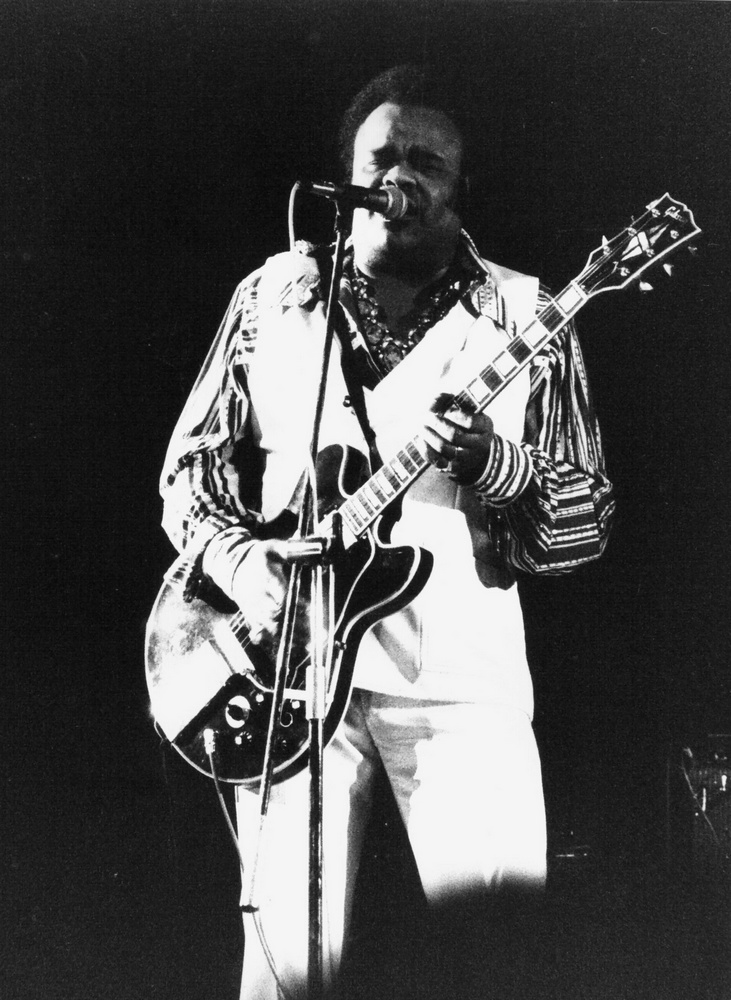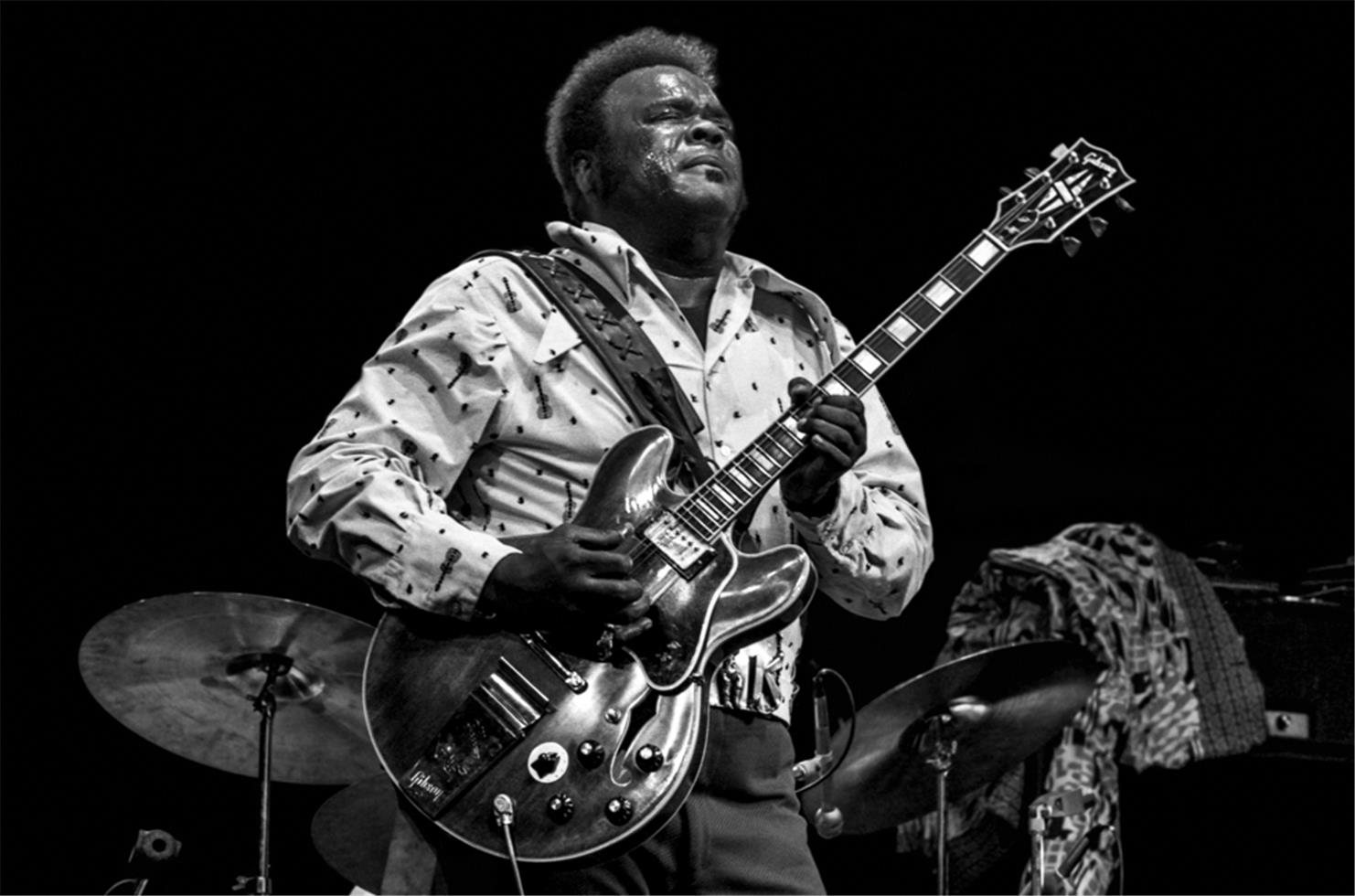Freddie King, often referred to as the “Texas Cannonball,” was a trailblazing blues guitarist and singer who left an indelible mark on the world of music. Born on September 3, 1934, in Gilmer, Texas, and raised in Chicago, Illinois, Freddie’s unique blend of Texas and Chicago blues, combined with his raw talent and fiery playing style, made him one of the most influential blues musicians of his time.
Early Life and Influences
Freddie Christian was born to Ella Mae King and J.T. Christian. At an early age, his mother and uncle, Leon King, introduced him to the guitar, sparking his lifelong passion for music. Freddie moved with his family to Chicago in 1950, and it was in this bustling musical city that he would hone his skills. The South Side of Chicago, a melting pot of blues talent, became Freddie’s classroom.
His early influences included legendary guitarists like T-Bone Walker, Lightnin’ Hopkins, and Robert Nighthawk, all of whom shaped his guitar style. However, it was the innovative approach of B.B. King and the raw intensity of Muddy Waters that led Freddie to develop his unique sound—a blend of Texas and Chicago blues that set him apart from other blues musicians.
Rise to Fame: “Hide Away” and Signature Sound
Freddie King began his professional career in the early 1950s, performing in Chicago clubs alongside blues greats such as Howlin’ Wolf, Little Walter, and Jimmy Rogers. However, it was his 1961 hit instrumental “Hide Away” that truly catapulted him to fame. The song, released on the Federal Records label, showcased Freddie’s ability to blend blues, R&B, and rock ‘n’ roll elements. The infectious groove, combined with Freddie’s scorching guitar work, made “Hide Away” a crossover hit, reaching No. 5 on the Billboard R&B chart and earning a lasting place in the blues canon.
Freddie’s playing style was characterized by his aggressive attack on the guitar strings and his use of a metal thumb pick, which gave his solos a sharp, cutting edge. His powerful voice, coupled with his dynamic stage presence, made him a force to be reckoned with on stage. Songs like “I’m Tore Down,” “Have You Ever Loved a Woman,” and “The Stumble” became staples of his live performances and solidified his reputation as one of the most exciting performers in the blues scene.
The Texas Cannonball: Touring and Success
By the mid-1960s, Freddie King had earned the nickname “Texas Cannonball” due to his explosive energy and high-octane performances. He toured relentlessly, both in the United States and abroad, spreading the gospel of the blues to new audiences. His popularity continued to grow, especially in the UK, where young guitarists like Eric Clapton, Peter Green, and Mick Taylor cited Freddie as a major influence.
In 1969, Freddie signed with Leon Russell’s Shelter Records, which helped him reach a wider rock audience. His albums for Shelter, including Getting Ready (1971), Texas Cannonball (1972), and Woman Across the River (1973), demonstrated his ability to evolve with the times. These records combined blues with elements of rock and soul, showing Freddie’s versatility as an artist and cementing his place in the hearts of both blues purists and rock enthusiasts.
Legacy and Influence
Freddie King’s influence on blues and rock guitarists cannot be overstated. His unique blend of Texas and Chicago blues laid the groundwork for many musicians who followed. The likes of Eric Clapton, Jeff Beck, Stevie Ray Vaughan, and even Jimi Hendrix have all credited Freddie King as a profound influence on their playing styles.
Though Freddie’s career was tragically cut short when he died on December 28, 1976, at the age of 42, his legacy continues to live on. He was posthumously inducted into the Rock and Roll Hall of Fame in 2012, and his recordings remain essential listening for blues and rock enthusiasts alike.
Conclusion
Freddie King’s contribution to the blues is both immense and enduring. As one of the “Three Kings of Blues Guitar” (alongside B.B. King and Albert King), he helped shape the sound of modern blues and left a lasting impact on generations of musicians. Whether through his pioneering guitar techniques or his unforgettable performances, Freddie King’s music continues to inspire and captivate listeners around the world.
He will forever be remembered as the Texas Cannonball, a blues legend whose powerful sound changed the course of music history.


No responses yet